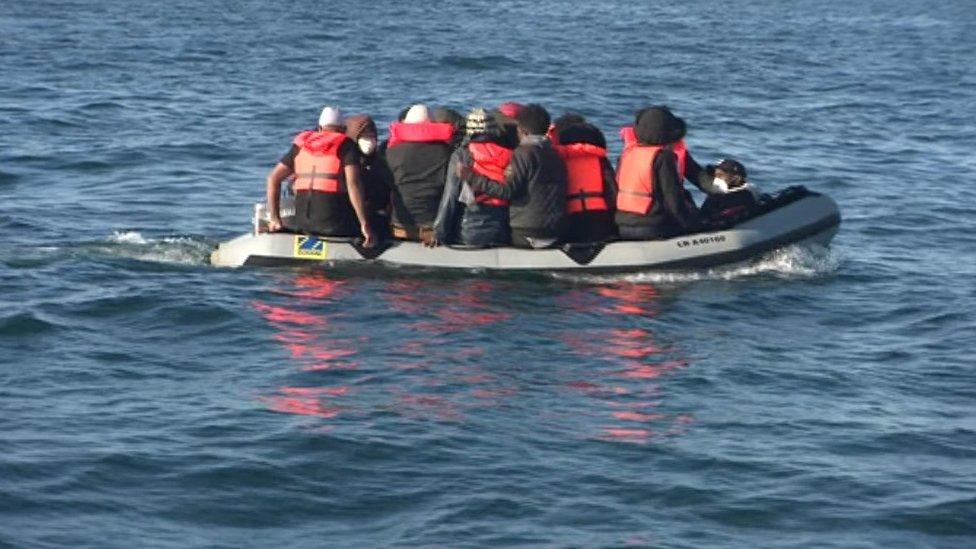UK and France agree deal to tackle rise in Channel crossings
- Published
The BBC's Jon Donnison spoke to some of the migrants trying to make the dangerous journey
France will double the number of police patrolling its beaches as part of a deal with the UK to stem the number of migrants crossing the English Channel.
It comes as the number of people crossing the Channel this year has now overtaken 2020's total.
The UK will pay more than £54m as part of the deal, which will also improve intelligence sharing.
But Calais MP Pierre-Henri Dumont suggested it would not have an impact as the French coastline is too big.
He told the Today programme: "The fact is, we've seen it before. Having more money, having more police officers, having more controls, will not prevent people to succeed in these crossing attempts.
"We have too many kilometres of shore to monitor."
The funding will also be used for better technology to target those who organise the crossings, the Home Office said.
A group of migrants was seen arriving at Dover on Wednesday morning, bringing the total number this year to more than the 8,461 who made the crossing in 2020.
On Monday at least 430 migrants crossed the Channel - a record for one day. The previous daily high of 416 was set in September last year.
The Home Office said on Tuesday 287 people had landed in the UK.
'Step too far'
UK Home Secretary Priti Patel and French interior minister Gerald Darmanin have agreed to "strengthen co-operation" over the crossings.
The Home Office said UK support last year helped France double the number of officers deployed daily on the beaches of its northern coast.
It said this resulted in France preventing twice as many crossings so far this year compared with the same period in 2020.
However, it said the people who facilitated the crossings had now changed their tactics and had moved further up the French coast, "forcing migrants to take even longer, riskier journeys".
Mr Dumont added that the French are not supposed to intervene at sea - yet former Border Force chief Tony Smith has called for joint patrols.
Mr Smith said: "That seems to be a step too far for the French at the moment. The French position is they are not prepared to intervene on the high seas, only on land."
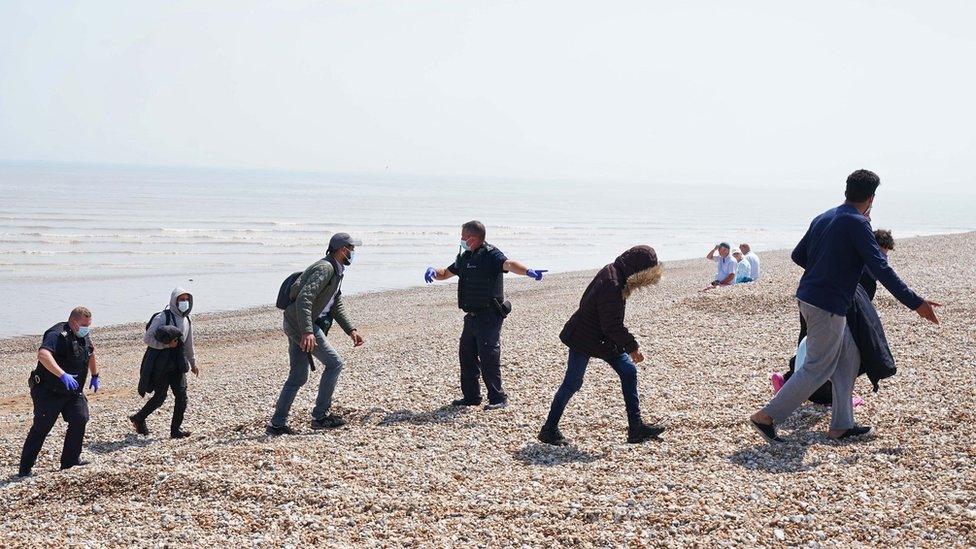
A group of people thought to be migrants are escorted by Border Patrol in Dungeness on Tuesday
The new support announced by the UK would enable France "to respond by posting more security forces further up the coast, installing and utilising the latest surveillance equipment throughout northern France", the Home Office said.
Home Office minister Victoria Atkins insisted that a £28m deal, external between the UK and France last November, to double police patrols on French beaches, had made a difference, saying it had prevented some 7,500 people crossing the Channel.
Ms Atkins told Today it was an "incredibly complicated" situation and that the UK was trying to work with other countries to make sure "when people arrive in a safe country, they remain there and do not try to make that hazardous journey". She said the government wanted "safe routes for legal migrants" and to crack down on the gangs bringing people over.

'No quick and easy fix'
Analysis by Simon Jones, BBC reporter, in Dover
From the famous White Cliffs of Dover, we watched this morning as another group of migrants was brought to shore by the Border Force, having been picked up in the Channel.
Conditions at sea are once again incredibly calm and the sun is shining, so these are unlikely to be the only arrivals today.
Almost 1,000 people have reached the UK by boat in the past three days, putting pressure on the home secretary to act.
Priti Patel is now pledging more money to the French authorities to try to prevent the crossings. But the deal struck last night is very similar to one agreed between Britain and France last November - which has failed to stem the numbers arriving, though the Home Office points out the number of crossings being prevented by the French authorities has doubled.
The government here accepts there is no quick and easy fix to problems with the asylum system, but there's no doubt the home secretary will want to see swift results in return for the increased investment in northern France.

Ms Patel has previously pledged to make Channel crossings "unviable", with new legislation that will make it a crime to knowingly arrive in the UK without permission.
The Nationality and Borders Bill, which is currently being considered by MPs, will mean migrants entering without permission could face up to four years in prison.
The government hopes the overhaul of asylum rules will deter migrants from making the crossing.
But the plans have been criticised by charities including Refugee Action, which has called them "extreme and nasty".
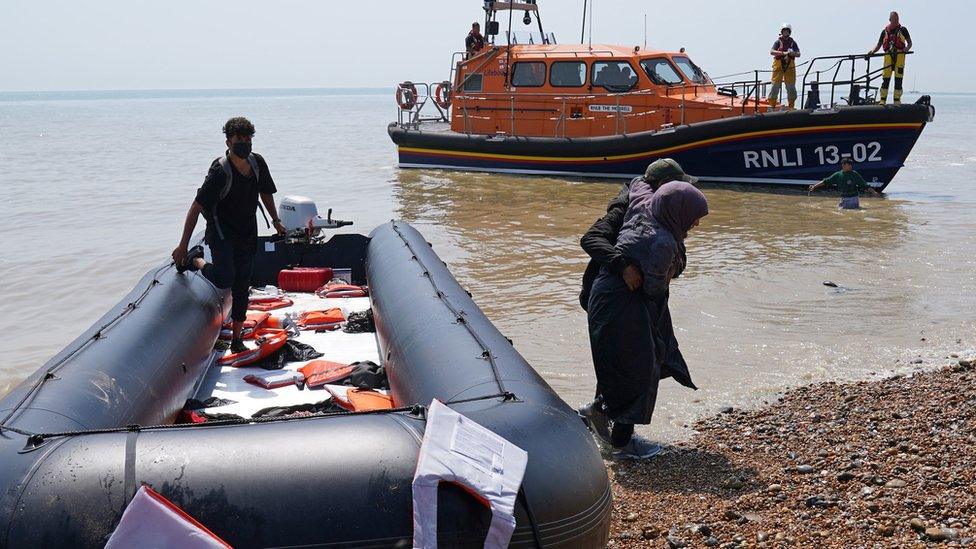
A dinghy's arrival being watched over by the crew of an RNLI lifeboat
Dan O'Mahoney, Clandestine Channel Threat Commander for the Home Office, said: "There is an unacceptable rise in dangerous small boat crossings across the Channel because of a surge in illegal migration across Europe.
"People should claim asylum in the first safe country they reach and not risk their lives making these dangerous crossings. We are continuing to pursue the criminals behind these illegal crossings."
He added that the Nationality and Borders Bill would "protect lives and break this cycle of illegal crossings" and the government was continuing to return those with no legal right to remain in the UK.
But Amnesty International's Steve Valdez-Symonds told the BBC the new legislation was an "extremely reckless and dangerous response" to the issue and would not tackle the problem of people smugglers.
Instead, he said it was likely to drive desperate people to avoid the authorities, leaving them vulnerable to further exploitation and slavery.
Labour shadow home secretary Nick Thomas-Symonds said the Home Office announcement was "yet more empty words from the Conservatives about agreeing a deal with France to address trafficking gangs".
He said ministers promised a plan with France in August 2020, "yet almost a year later they are still making empty promises, letting down victims, and allowing criminals to continue their evil trade".
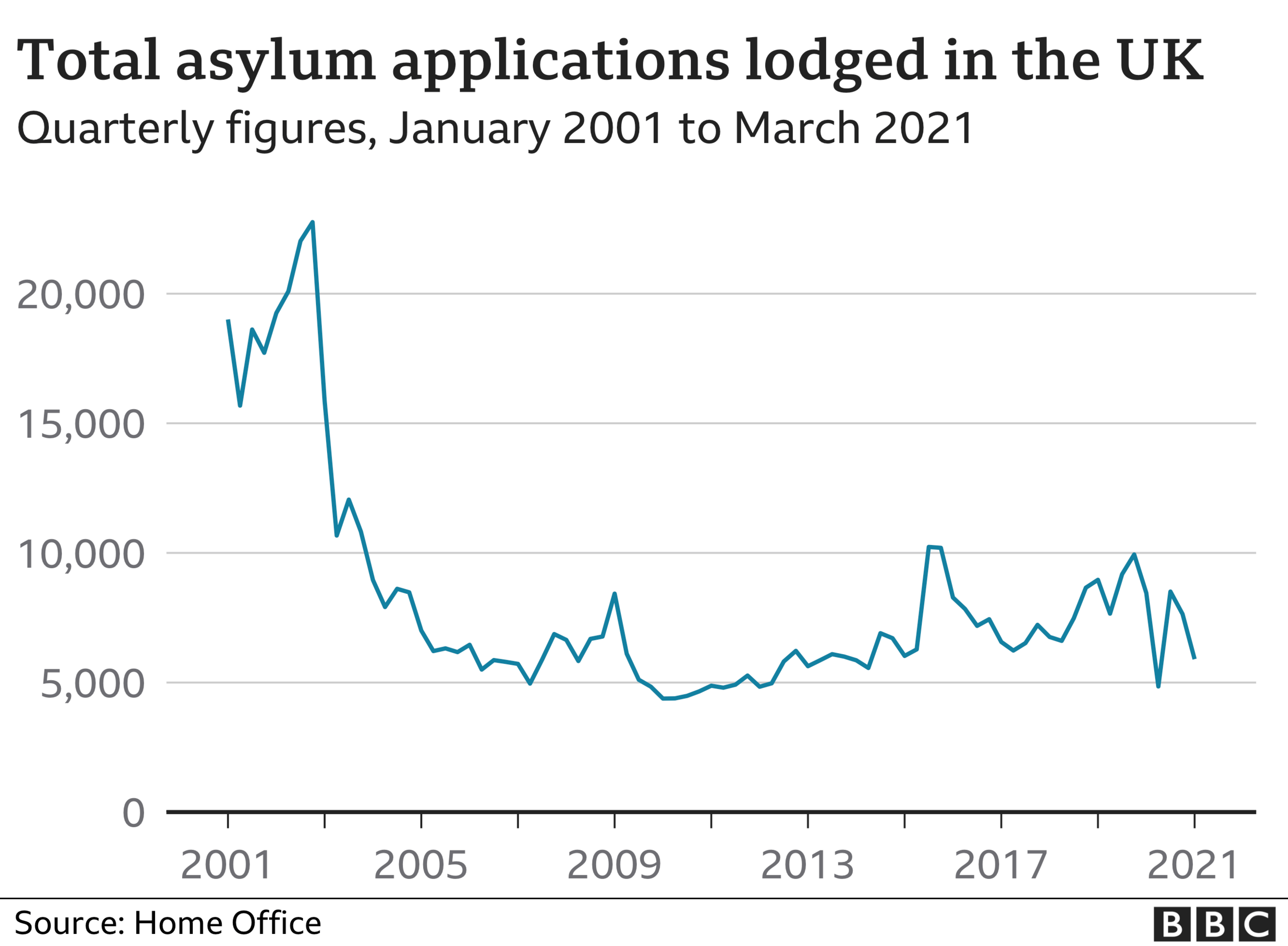
- Published20 July 2021
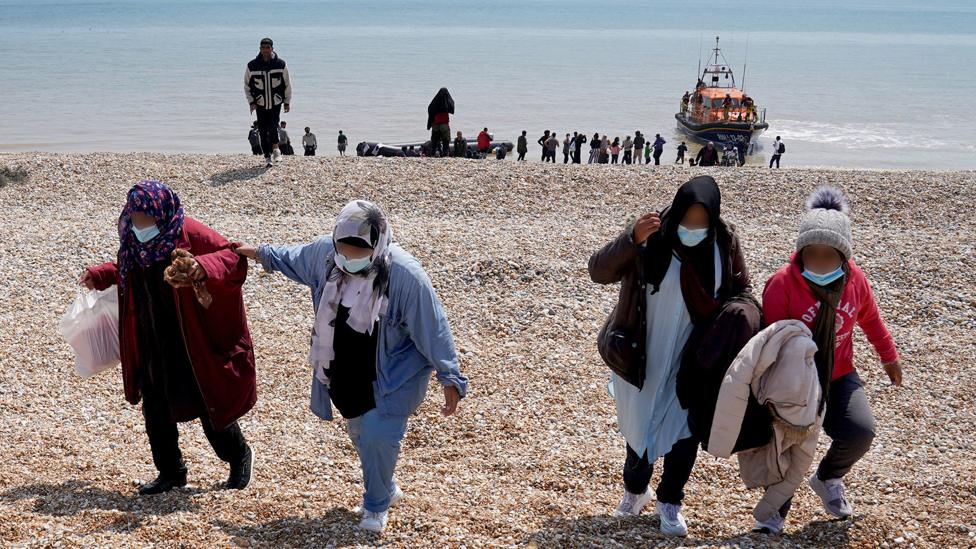
- Published19 July 2021
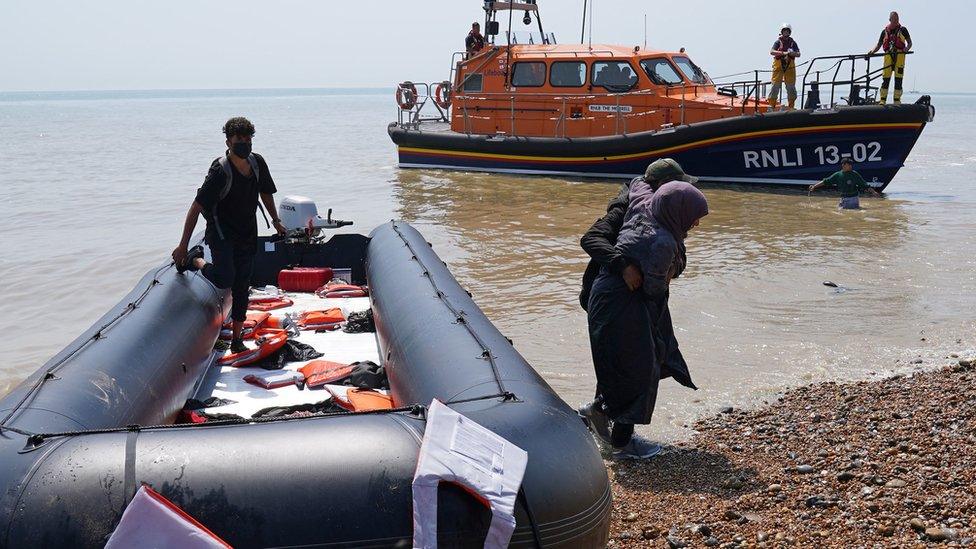
- Published13 July 2021

- Published29 June 2021
